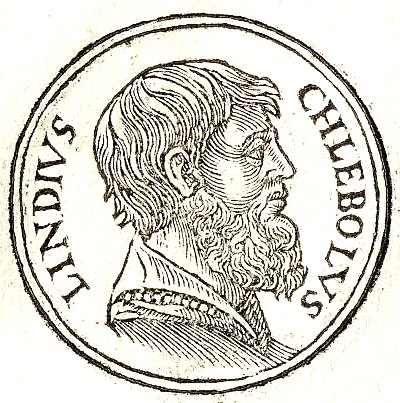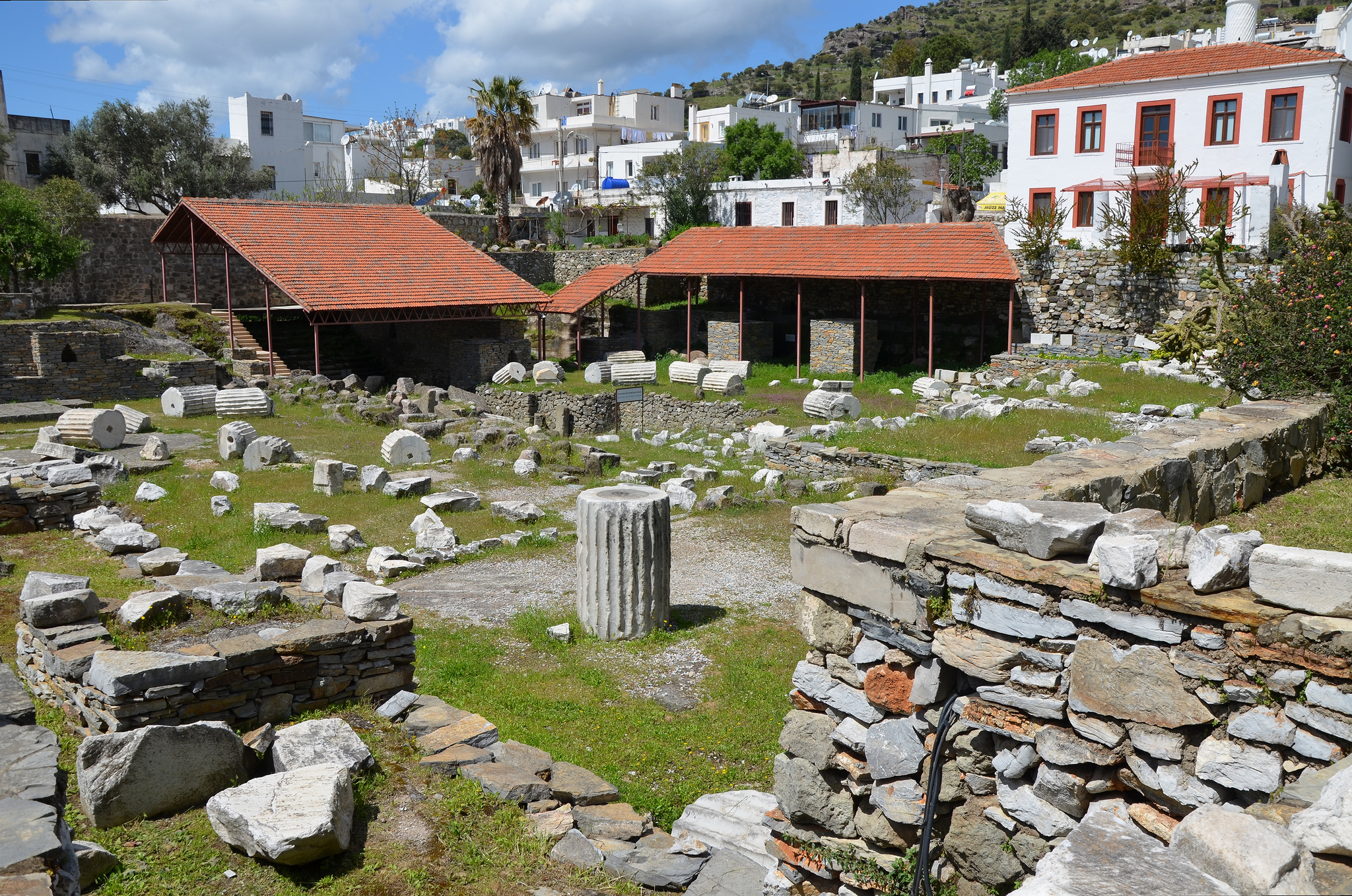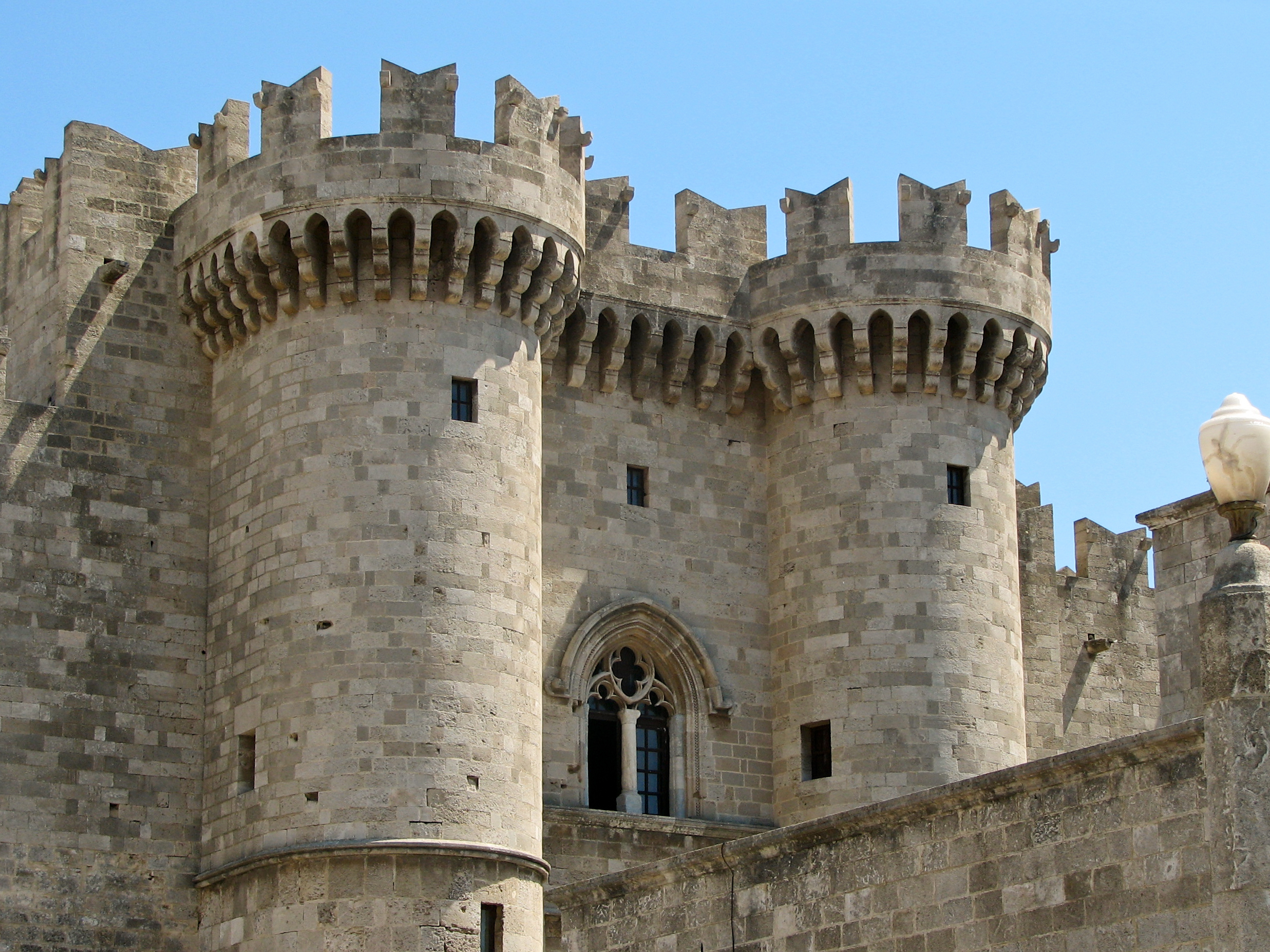|
Lindus
Lindus or Lindos ( gr, Λίνδος) was one of the most important towns in ancient Rhodes. It was situated on the eastern coast, a little to the north of a promontory bearing the same name. The district was in ancient times very productive in wine and figs, though otherwise it was very barren. In the Catalogue of Ships in the ''Iliad'' of Homer, Lindus, together with the two other Rhodian cities, Ialysus and Camirus, are said to have taken part in the war against Troy. Their inhabitants were Dorians, and formed the three Dorian tribes of the island, Lindus itself being one of the Doric Hexapolis in the south-west of Asia Minor. Previous to the year 408 BCE, when the city of Rhodes was built, Lindus, like the other cities, formed a little state by itself, but when Rhodes was founded, a great part of the population and the common government was transferred to the new city. Lindus, however, though it lost its political importance, still retained religious importance, for it contain ... [...More Info...] [...Related Items...] OR: [Wikipedia] [Google] [Baidu] |
Cleobulus
Cleobulus (; el, Κλεόβουλος ὁ Λίνδιος, ''Kleoboulos ho Lindios''; fl. 6th century BC) was a Greek poet and a native of Lindos. He is one of the Seven Sages of Greece. Life Cleobulus was the son of Evagoras and a citizen of Lindus in Rhodes. Clement of Alexandria called Cleobulus king of the Lindians, and Plutarch spoke of him as the tyrant. The letter quoted by Diogenes Laërtius, in which Cleobulus invites Solon to Lindus as a democratic place of refuge from the tyrant Peisistratus in Athens, is undoubtedly a later forgery. Cleobulus is also said to have studied philosophy in Egypt.Diogenes Laërtius, i. 89 He had a daughter, Cleobulina, who found fame as a poet, composing riddles in hexameter verse. Cleobulus is said to have lived to the age of seventy, and to have been greatly distinguished for strength and beauty of person. Extant fragments Cleobulus apparently wrote lyric poems, as well as riddles in verse. Diogenes Laërtius also ascribes to him the ins ... [...More Info...] [...Related Items...] OR: [Wikipedia] [Google] [Baidu] |
Lindos
Lindos (; grc-gre, Λίνδος) is an archaeological site, a fishing village and a former municipality on the island of Rhodes, in the Dodecanese, Greece. Since the 2011 local government reform it is part of the municipality Rhodes, of which it is a municipal unit. The municipal unit has an area of 178.9 km2. It lies on the east coast of the island. It is about 40 km south of the city of Rhodes and its fine beaches make it a popular tourist and holiday destination. Lindos is situated in a large bay and faces the fishing village and small resort of Charaki. History According to myth, Lindos was founded by the Dorians led by the king Tlepolemus of Rhodes, who arrived in about the 10th century BC. It was one of six Dorian cities in the area known as the Dorian Hexapolis. The eastern location of Rhodes made it a natural meeting place between the Greeks and the Phoenicians, and by the 8th century Lindos was a major trading centre. In the 6th century it was ruled by Cleo ... [...More Info...] [...Related Items...] OR: [Wikipedia] [Google] [Baidu] |
Catalogue Of Ships
The Catalogue of Ships ( grc, νεῶν κατάλογος, ''neōn katálogos'') is an epic catalogue in Book 2 of Homer's ''Iliad'' (2.494–759), which lists the contingents of the Achaean army that sailed to Troy. The catalogue gives the names of the leaders of each contingent, lists the settlements in the kingdom represented by the contingent, sometimes with a descriptive epithet that fills out a half-verse or articulates the flow of names and parentage and place, and gives the number of ships required to transport the men to Troy, offering further differentiations of weightiness. A similar, though shorter, Catalogue of the Trojans and their allies follows (2.816–877). A similar catalogue appears in the Pseudo-Apollodoran ''Bibliotheca''. Historical background In the debate since antiquity over the Catalogue of Ships, the core questions have concerned the extent of historical credibility of the account, whether it was composed by Homer himself, to what extent it reflect ... [...More Info...] [...Related Items...] OR: [Wikipedia] [Google] [Baidu] |
Doric Hexapolis
The Doric or Dorian Hexapolis ( grc-gre, Δωρικὴ Ἑξάπολις or Δωριέων Ἑξάπολις) was a federation of six cities of Dorian foundation in southwest Asia Minor and adjacent islands, largely coextensive with the region known as Doris or Doris in Asia (), and included: *Cos, on the island of Cos *Cnidus in Caria; *Halicarnassus in Caria; * Lindus, on the island of Rhodes; * Ialysus on Rhodes; and * Camirus on Rhodes. The members of this ''hexapolis'' celebrated a festival, with games, on the Triopian promontory near Cnidus, in honour of the Triopian Apollo; the prizes in those games were brazen tripods, which the victors had to dedicate in the temple of Apollo; and Halicarnassus was struck out of the league, because one of her citizens carried the tripod to his own house before dedicating it in the temple of Apollo. The ''hexapolis'' thus became the Doric Pentapolis. ( Herod. i. 144.) Pliny (v. 28) says, ''Caria mediae Doridi circumfunditur ad mare u ... [...More Info...] [...Related Items...] OR: [Wikipedia] [Google] [Baidu] |
Seven Sages Of Greece
The Seven Sages (of Greece) or Seven Wise Men (Greek: ''hoi hepta sophoi'') was the title given by classical Greek tradition to seven philosophers, statesmen, and law-givers of the 7–6th century BC who were renowned for their wisdom. The Seven Sages Typically the list of the seven sages includes: * Thales of Miletus () is the first well-known Greek philosopher, mathematician, and astronomer. His advice, " Know thyself", was engraved on the front facade of the Temple of Apollo in Delphi. * Pittacus of Mytilene () governed Mytilene ( Lesbos). He tried to reduce the power of the nobility and was able to govern with the support of the demos, whom he favoured. * Bias of Priene () was a politician and legislator of the 6th century BC. * Solon of Athens () was a famous legislator and reformer from Athens, framing the laws that shaped the Athenian democracy. * The fifth and sixth sage are variously given as two of: Cleobulus, tyrant of Lindos (), reported as either th ... [...More Info...] [...Related Items...] OR: [Wikipedia] [Google] [Baidu] |
Ancient Rhodes
Rhodes ( el, Ρόδος, ''Ródos'' ) is the principal city and a former municipality on the island of Rhodes in the Dodecanese, Greece. Since the 2011 local government reform it is part of the municipality Rhodes, of which it is the seat and a municipal unit. It has a population of approximately 50,000 inhabitants (near 90,000 in its metropolitan area). Rhodes has been famous since antiquity as the site of Colossus of Rhodes, one of the Seven Wonders of the Ancient World. The citadel of Rhodes, built by the Hospitalliers, is one of the best-preserved medieval towns in Europe, which in 1988 was designated as a UNESCO World Heritage Site. Today, the city of Rhodes is an important Greek urban center and popular international tourist destination. Geography The city of Rhodes is situated in the north-east tip of the island and forms a triangle from north to south. The municipal unit has an area of 19.481 km2. It is the smallest municipal unit of the island in terms of lan ... [...More Info...] [...Related Items...] OR: [Wikipedia] [Google] [Baidu] |
Ancient Greek Archaeological Sites In Greece
Ancient history is a time period from the beginning of writing and recorded human history to as far as late antiquity. The span of recorded history is roughly 5,000 years, beginning with the Sumerian cuneiform script. Ancient history covers all continents inhabited by humans in the period 3000 BCAD 500. The three-age system periodizes ancient history into the Stone Age, the Bronze Age, and the Iron Age, with recorded history generally considered to begin with the Bronze Age. The start and end of the three ages varies between world regions. In many regions the Bronze Age is generally considered to begin a few centuries prior to 3000 BC, while the end of the Iron Age varies from the early first millennium BC in some regions to the late first millennium AD in others. During the time period of ancient history, the world population was already exponentially increasing due to the Neolithic Revolution, which was in full progress. While in 10,000 BC, the world population stood ... [...More Info...] [...Related Items...] OR: [Wikipedia] [Google] [Baidu] |
Greek City-states
''Polis'' (, ; grc-gre, πόλις, ), plural ''poleis'' (, , ), literally means "city" in Greek. In Ancient Greece, it originally referred to an administrative and religious city center, as distinct from the rest of the city. Later, it also came to mean the body of citizens under a city's jurisdiction. In modern historiography, the term is normally used to refer to the ancient Greek city-states, such as Classical Athens and its contemporaries, and thus is often translated as "city-state". The ''poleis'' were not like other primordial ancient city-states like Tyre or Sidon, which were ruled by a king or a small oligarchy; rather, they were political entities ruled by their bodies of citizens. The Ancient Greek ''poleis'' developed during the Archaic period as the ancestor of the Ancient Greek city, state and citizenship and persisted (though with decreasing influence) well into Roman times, when the equivalent Latin word was ''civitas'', also meaning "citizenhood", whil ... [...More Info...] [...Related Items...] OR: [Wikipedia] [Google] [Baidu] |
Ancient Rhodes
Rhodes ( el, Ρόδος, ''Ródos'' ) is the principal city and a former municipality on the island of Rhodes in the Dodecanese, Greece. Since the 2011 local government reform it is part of the municipality Rhodes, of which it is the seat and a municipal unit. It has a population of approximately 50,000 inhabitants (near 90,000 in its metropolitan area). Rhodes has been famous since antiquity as the site of Colossus of Rhodes, one of the Seven Wonders of the Ancient World. The citadel of Rhodes, built by the Hospitalliers, is one of the best-preserved medieval towns in Europe, which in 1988 was designated as a UNESCO World Heritage Site. Today, the city of Rhodes is an important Greek urban center and popular international tourist destination. Geography The city of Rhodes is situated in the north-east tip of the island and forms a triangle from north to south. The municipal unit has an area of 19.481 km2. It is the smallest municipal unit of the island in terms of lan ... [...More Info...] [...Related Items...] OR: [Wikipedia] [Google] [Baidu] |
Locations In The Iliad
In geography, location or place are used to denote a region (point, line, or area) on Earth's surface or elsewhere. The term ''location'' generally implies a higher degree of certainty than ''place'', the latter often indicating an entity with an ambiguous boundary, relying more on human or social attributes of place identity and sense of place than on geometry. Types Locality A locality, settlement, or populated place is likely to have a well-defined name but a boundary that is not well defined varies by context. London, for instance, has a legal boundary, but this is unlikely to completely match with general usage. An area within a town, such as Covent Garden in London, also almost always has some ambiguity as to its extent. In geography, location is considered to be more precise than "place". Relative location A relative location, or situation, is described as a displacement from another site. An example is "3 miles northwest of Seattle". Absolute location An absolute loc ... [...More Info...] [...Related Items...] OR: [Wikipedia] [Google] [Baidu] |
Populated Places In The Ancient Aegean Islands
Population typically refers to the number of people in a single area, whether it be a city or town, region, country, continent, or the world. Governments typically quantify the size of the resident population within their jurisdiction using a census, a process of collecting, analysing, compiling, and publishing data regarding a population. Perspectives of various disciplines Social sciences In sociology and population geography, population refers to a group of human beings with some predefined criterion in common, such as location, race, ethnicity, nationality, or religion. Demography is a social science which entails the statistical study of populations. Ecology In ecology, a population is a group of organisms of the same species who inhabit the same particular geographical area and are capable of interbreeding. The area of a sexual population is the area where inter-breeding is possible between any pair within the area and more probable than cross-breeding with ... [...More Info...] [...Related Items...] OR: [Wikipedia] [Google] [Baidu] |
List Of Ancient Greek Cities
A ''list'' is any set of items in a row. List or lists may also refer to: People * List (surname) Organizations * List College, an undergraduate division of the Jewish Theological Seminary of America * SC Germania List, German rugby union club Other uses * Angle of list, the leaning to either port or starboard of a ship * List (information), an ordered collection of pieces of information ** List (abstract data type), a method to organize data in computer science * List on Sylt, previously called List, the northernmost village in Germany, on the island of Sylt * ''List'', an alternative term for ''roll'' in flight dynamics * To ''list'' a building, etc., in the UK it means to designate it a listed building that may not be altered without permission * Lists (jousting), the barriers used to designate the tournament area where medieval knights jousted * ''The Book of Lists'', an American series of books with unusual lists See also * The List (other) * Listing ... [...More Info...] [...Related Items...] OR: [Wikipedia] [Google] [Baidu] |








